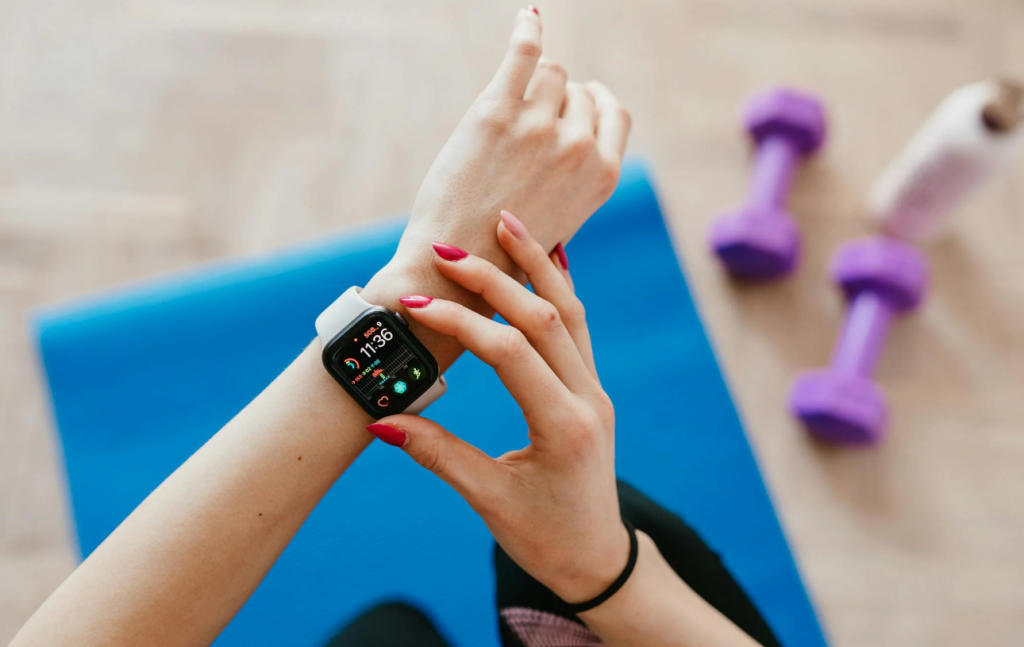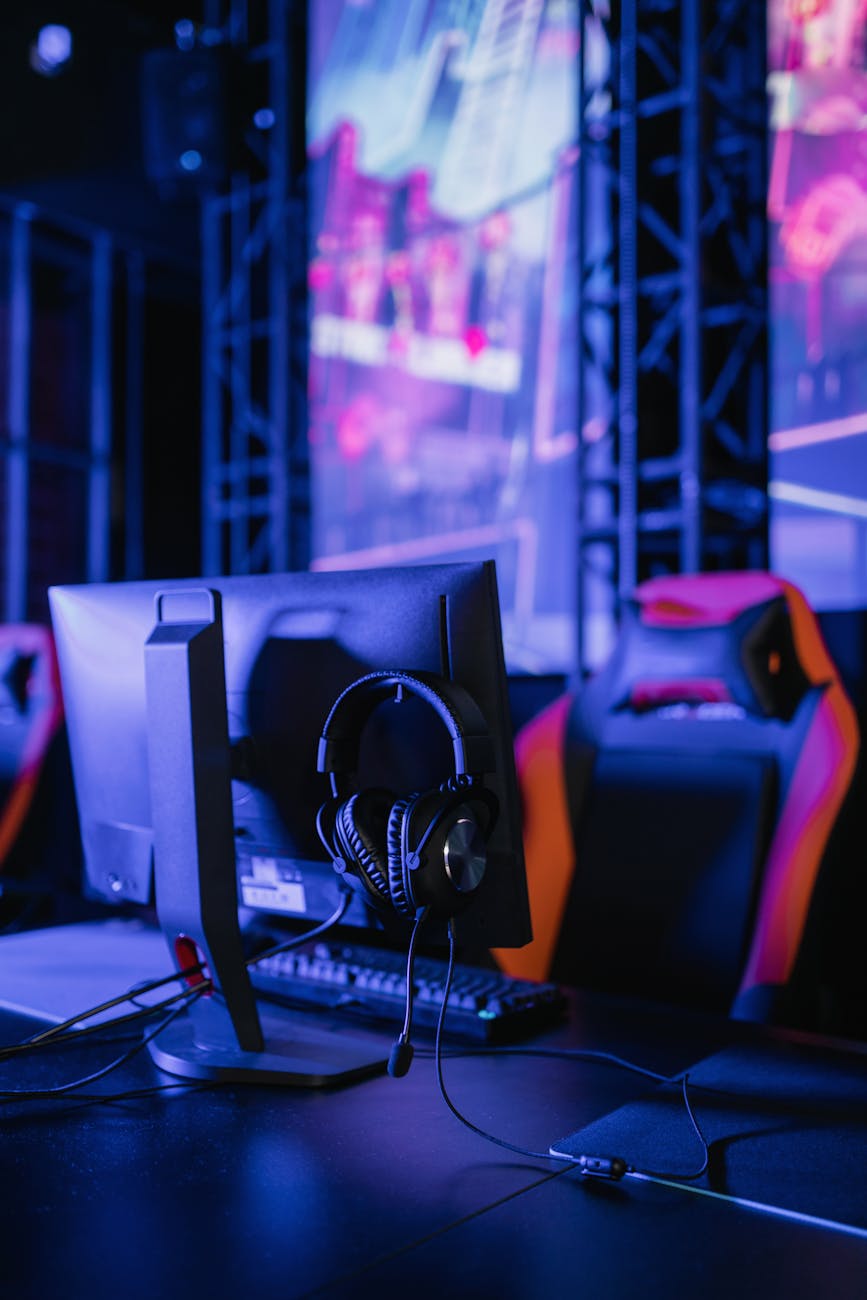Introduction
Picture this: it’s 2025, and your wrist is buzzing with insights about your morning jog, your heart rate, and even how well you slept last night. Fitness trackers have become more than just gadgets—they’re like personal coaches, cheering you on toward your health goals. Whether you’re a couch potato taking your first steps or a marathon runner chasing a personal best, there’s a fitness tracker in 2025 designed just for you. But with so many options, how do you choose the right one? In this guide, we’ll break down the best fitness trackers for every goal, from budget-friendly bands to high-tech smartwatches, so you can find the perfect fit for your lifestyle.
Why Fitness Trackers Matter in 2025
Fitness trackers aren’t just trendy accessories; they’re game-changers for anyone serious about health. In 2025, these devices have evolved into sophisticated tools that do far more than count steps. They’re your accountability partner, your sleep analyst, and your workout planner, all rolled into one. Why does this matter? Because data drives progress. Knowing your heart rate during a spin class or how many calories you burned on a hike can turn vague intentions into measurable results.
The Shift from Simple Pedometers
Remember those clunky pedometers from the early 2000s? They clipped onto your belt and proudly announced you’d walked 10,000 steps—maybe. Today’s fitness trackers are light-years ahead. They pack optical heart rate sensors, GPS, and even electrocardiogram (ECG) capabilities. Some, like the Fitbit Charge 6, can connect to gym equipment for real-time workout stats. Others, like the Garmin Venu 3, offer personalized coaching based on your recovery data. This isn’t just tracking; it’s a full-on health revolution.
A Tool for Every Goal
What’s your fitness vibe? Are you trying to hit a daily step goal, train for a triathlon, or just sleep better? The beauty of 2025’s fitness trackers is their versatility. There’s a device for every ambition, whether you want a sleek smartwatch like the Apple Watch Series 10 or a discreet ring like the Oura Ring 4. No matter your goal, there’s a tracker that speaks your language.

Key Features to Look for in a Fitness Tracker
Not all trackers are created equal, so let’s talk must-haves. A good fitness tracker should nail the basics: step counting, heart rate monitoring, and sleep tracking. But the best ones go further—think built-in GPS for outdoor adventures, water resistance for swimmers, and apps that turn raw data into actionable insights. Here’s what to prioritize.
Accuracy and Reliability
If your tracker says you ran 5 miles but you barely left the couch, it’s not doing its job. Accuracy is everything. Devices like the Garmin Venu 3 use multi-band GPS and advanced heart rate sensors for pinpoint precision. Why does this matter? Because inaccurate data can throw off your training or make you think you’re fitter than you are. Look for trackers with proven algorithms, like those from Garmin or Fitbit, to keep your stats honest.
Battery Life and Comfort
Ever had a tracker die mid-workout? It’s like your coach bailing on you. Battery life is crucial, especially for athletes. The Garmin Forerunner 165 boasts up to 11 days of juice, while the Apple Watch Series 10 needs a daily charge. Comfort is just as important—nobody wants a bulky brick on their wrist. Lightweight options like the Fitbit Inspire 3 or the Oura Ring 4 feel like they’re barely there, even during sleep.
Smart Features and App Integration
A tracker’s app is its brain. Fitbit’s app, for example, lets you log meals, track menstrual cycles, and set goals like improving heart health. Smart features—like notifications, music controls, or Google Wallet on the Fitbit Charge 6—add convenience. Ask yourself: do you want a tracker that’s a standalone fitness tool or one that doubles as a mini smartphone?
Best Fitness Trackers for Beginners
New to fitness? You don’t need a $500 smartwatch to get started. Entry-level trackers are affordable, user-friendly, and packed with enough features to keep you motivated. Here are two standouts for 2025.
Fitbit Inspire 3
The Fitbit Inspire 3 is like the friendly gym buddy you didn’t know you needed. For about $100, it delivers heart rate monitoring, sleep tracking, and a vibrant AMOLED screen. Its Active Zone Minutes metric encourages you to stay in your target heart rate zone, and the 10-day battery life means less time charging. The catch? No built-in GPS, so you’ll need your phone for outdoor tracking. Still, it’s a fantastic starting point for casual fitness fans.
Xiaomi Smart Band 9
Want to spend even less? The Xiaomi Smart Band 9 is a steal at under $50. It’s got a sharp AMOLED display, heart rate tracking, and a pulse oximeter for blood oxygen levels. With over 50 workout modes and seven days of battery life, it’s perfect for budget-conscious beginners. Just don’t expect the slick app experience you’d get from Fitbit or Garmin.
Top Picks for Serious Athletes
If you’re logging serious miles or crushing gym sessions, you need a tracker that can keep up. These devices are built for precision, durability, and advanced metrics.
Garmin Venu 3
The Garmin Venu 3 is a beast for athletes. Its multi-band GPS nails location accuracy, even in dense forests or urban jungles. It tracks over 30 sports, offers recovery time estimates, and even has an FDA-approved ECG for heart health. The 14-day battery life is a dream for ultra-runners, but the interface can feel clunky at first. If you’re chasing performance, this is your go-to.
Apple Watch Series 10
For iPhone users, the Apple Watch Series 10 is a no-brainer. It’s more than a fitness tracker—it’s a lifestyle hub. With watchOS 11, you get Training Load insights, a Vitals app for health trends, and a water-temperature sensor for swimmers. The catch? It’s pricey, and the 24-hour battery life lags behind Garmin. But for seamless integration and a gorgeous display, it’s tough to beat.
Best Smart Rings for Discreet Tracking
Not a fan of wrist gadgets? Smart rings are the sleek, subtle alternative taking 2025 by storm. They’re perfect for professionals or anyone who wants top-tier tracking without the bulk.
Oura Ring 4
The Oura Ring 4 is a masterpiece of minimalist design. Worn on your finger, it tracks sleep, heart rate, and recovery with uncanny accuracy. Its app delivers detailed insights, like how last night’s late Netflix binge tanked your readiness score. At 0.11 ounces, you’ll forget it’s there—until it wakes you gently during a light sleep phase. The downside? It requires a subscription, and it lacks GPS for workout tracking. For health-focused folks, it’s a gem.
Budget-Friendly Options for 2025
You don’t need to break the bank for quality tracking. These budget picks deliver impressive features without the premium price tag.
Amazfit Active 2
The Amazfit Active 2, priced around $100, is a budget powerhouse. It offers built-in GPS, a 10-day battery life, and Alexa voice controls. Its 1.74-inch AMOLED screen is crisp, and it tracks over 120 sports. While its app isn’t as polished as Garmin’s, the value is unbeatable for cost-conscious buyers looking for versatility.
Fitness Trackers for Specific Goals
Some trackers shine for niche goals. Let’s dive into two popular ones: running and sleep tracking.
For Runners
Runners need GPS accuracy and pace metrics. The Garmin Forerunner 265 is a favorite, with dual-frequency GPS and a Running Dynamics feature that analyzes stride length and ground contact time. The Fitbit Charge 6 is another solid pick, though its GPS can be spotty for long runs. Pair either with a phone for turn-by-turn navigation, and you’re set.
For Sleep Tracking
Poor sleep can sabotage your fitness. The Oura Ring 4 leads the pack with detailed sleep stage analysis and smart wake technology. The Fitbit Inspire 3 also excels, logging REM, deep, and light sleep phases. Want to wake up refreshed? These trackers will show you where your sleep game needs work.
How to Choose the Right Tracker for You
With so many options, picking a tracker can feel overwhelming. Start by asking: What’s my primary goal? If it’s casual activity, go for the Fitbit Inspire 3. If you’re an athlete, splurge on the Garmin Venu 3. Budget matters too—don’t overspend on features you won’t use.
Compatibility with Your Phone
Got an iPhone? The Apple Watch Series 10 is your best bet for seamless integration. Android users should lean toward the Samsung Galaxy Watch 7 or Google Pixel Watch 3. Most trackers, like Fitbit and Garmin, play nice with both, but check compatibility to avoid headaches.
Subscription Costs
Some trackers, like the Fitbit Charge 6 and Oura Ring 4, lock premium features behind subscriptions. Fitbit Premium ($9.99/month) unlocks advanced sleep stats and workouts, while Oura’s membership adds deeper health insights. Factor these costs into your budget to avoid surprises.
The Future of Fitness Trackers
What’s next for fitness trackers? Expect AI-driven coaching, like personalized workout plans based on your data. Health diagnostics are also on the rise—think blood glucose monitoring or early illness detection. By 2026, your tracker might know you’re getting sick before you do. Exciting, right?
Conclusion
In 2025, fitness trackers are your ticket to smarter, healthier living. From the budget-friendly Xiaomi Smart Band 9 to the high-octane Garmin Venu 3, there’s a device for every goal—whether you’re stepping up your daily walks, crushing marathons, or mastering your sleep. The key is picking a tracker that fits your lifestyle and budget while delivering the data you need to succeed. So, what are you waiting for? Strap on a tracker and start chasing your goals today.
FAQs
- Do I need a fitness tracker if I already have a smartphone?
Smartphones can track steps, but fitness trackers offer more precise heart rate, sleep, and workout data. They’re also less bulky during exercise and provide dedicated apps for deeper insights. - Are fitness trackers accurate for calorie tracking?
Calorie estimates are based on algorithms using heart rate and activity data. While not 100% precise, trackers like the Garmin Venu 3 and Apple Watch Series 10 are reliable for general trends. - Can fitness trackers help with weight loss?
Absolutely! Trackers monitor calories burned, activity levels, and even food intake (via apps). Pairing a tracker like the Fitbit Inspire 3 with a calorie deficit can accelerate weight loss. - Do all fitness trackers require a subscription?
No, but some, like the Fitbit Charge 6 and Oura Ring 4, gate premium features behind paywalls. Basic functions, like step and heart rate tracking, are usually free. - Are smart rings better than wrist trackers?
It depends. Smart rings like the Oura Ring 4 excel at sleep and recovery tracking but lack GPS and workout-focused features. Wrist trackers are more versatile for active users.















Leave a Reply